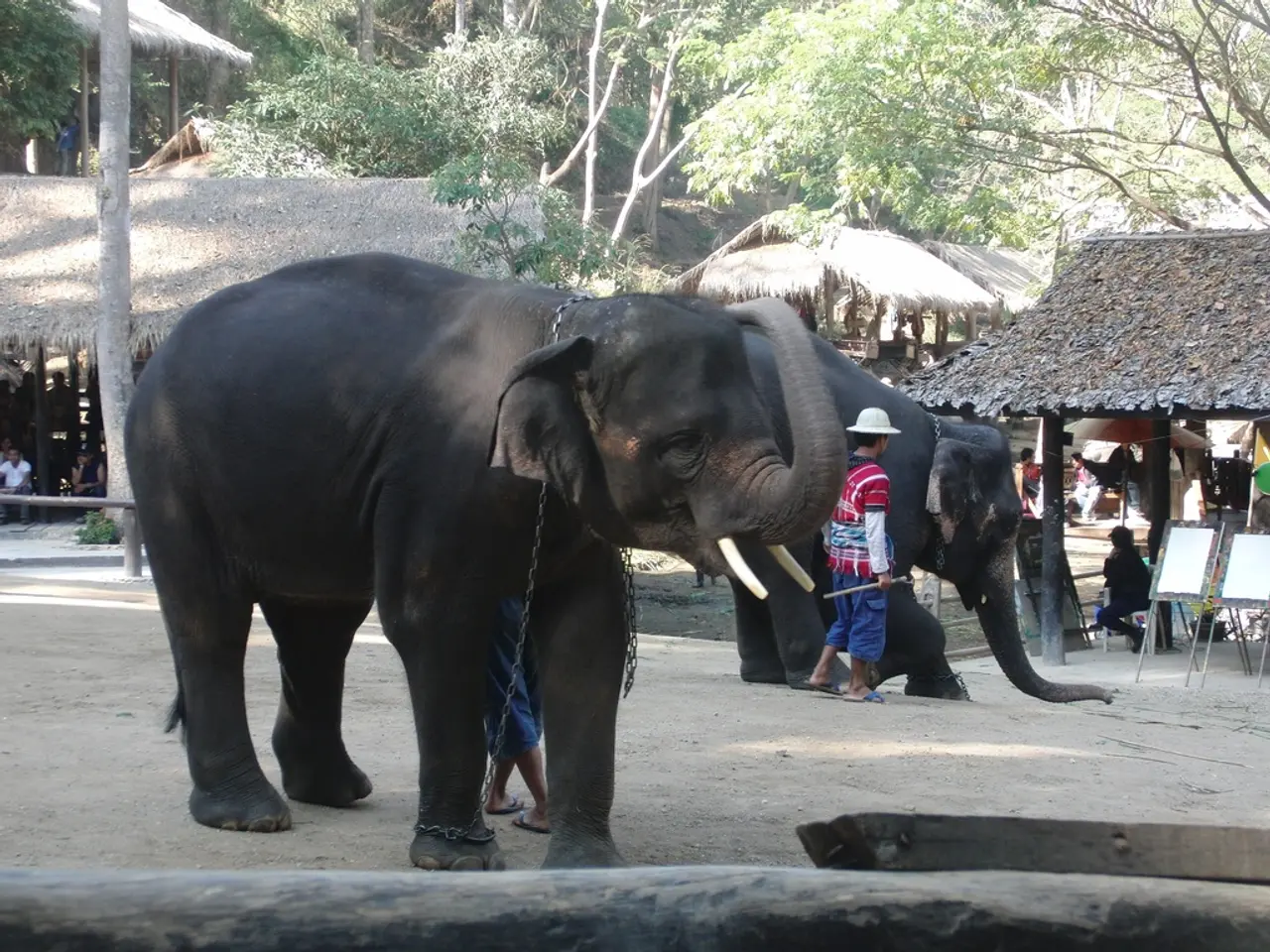Discover Mondulkiri, Cambodia: Top Attractions, Accommodation Options, and Further Information
Exploring Mondulkiri: Cambodia's Mountainous Wilderness
Nestled in the heart of Cambodia lies Mondulkiri, a province often referred to as the "center of mountains" in Khmer. Known for its significant ecological value and rich cultural diversity, Mondulkiri is an ideal destination for nature lovers and adventurers.
Mondulkiri boasts key protected areas like the Phnom Prich and Srepok Wildlife Sanctuaries, recognized by the WWF as one of Asia's last major wildernesses, covering 4,300 sq km. The province is also home to several stunning waterfalls, including Bou Sra, Dak Dam, and Pu Long.
Mondulkiri's capital, Sen Monorom, serves as a gateway to this largely untouched wilderness. Visitors can explore the forests alongside the Bunong people, learn about local ecosystems, and discover hidden waterfalls.
The province is a haven for ethical and nature-focused tourism experiences, including community-based tourism that supports local livelihoods. Notable attractions include the Elephant Valley Project and Mondulkiri Elephant & Wildlife Sanctuary, offering opportunities to interact with these majestic creatures in a responsible and respectful manner.
Accommodation options cater to various preferences, from rustic wooden bungalows at Nature Lodge, popular among nature lovers, to modern villas at Mayura Hill Resort and KNN Resort Mondulkiri, conveniently located for town attractions. Pida Coffee Farm Lodge offers a unique experience, allowing guests to immerse in rural life and learn about coffee cultivation.
However, Mondulkiri faces a significant threat from illegal logging, particularly in protected areas like the Sre Pok Wildlife Sanctuary and Mondulkiri Protected Forest. This practice targets virgin tropical seasonal forests, harming biodiversity, indigenous communities, and ecological balance.
Despite these challenges, a combination of government crackdowns, environmental activism, international satellite monitoring, and conservation NGO efforts aims to protect the region's forests. However, ongoing enforcement challenges, socio-political risks for activists, and transboundary smuggling remain significant obstacles to fully securing Mondulkiri’s forests.
Travellers planning a trip to Mondulkiri should note that Indian citizens need a visa to enter Cambodia, available as an e-visa or on arrival at major airports and land borders. The closest airport to Mondulkiri is Phnom Penh International Airport (PNH), about 373 km away by air and 367 km by road.
Before embarking on your adventure, remember to respect the local culture, support ethical tourism, and help preserve this remarkable wilderness for future generations to enjoy.
References:
- Mongabay. (2021, March 16). Cambodia’s Mondulkiri Province: A battleground for conservation. Retrieved from https://news.mongabay.com/2021/03/cambodias-mondulkiri-province-a-battleground-for-conservation/
- WWF. (n.d.). Mondulkiri. Retrieved from https://www.wwf.org.uk/where-we-work/asia/cambodia/mondulkiri
- The Phnom Penh Post. (2020, March 11). Mondulkiri’s forests under threat from illegal logging. Retrieved from https://www.phnompenhpost.com/national/mondulkiri-s-forests-under-threat-illegal-logging
- The Cambodia Daily. (2018, August 27). Illegal logging threatens Cambodia’s Mondulkiri wildlife sanctuary. Retrieved from https://www.cambodiadaily.com/archives/illegal-logging-threatens-cambodias-mondulkiri-wildlife-sanctuary-95942/
- Amnesty International. (2020, April 22). Cambodia: Amnesty International reveals deforestation and human rights abuses in Cambodia’s protected areas. Retrieved from https://www.amnesty.org/en/latest/news/2020/04/cambodia-amnesty-international-reveals-deforestation-and-human-rights-abuses-in-cambodias-protected-areas/
Mondulkiri's diverse landscape, composed of protected sanctuaries and stunning waterfalls, makes it an ideal destination for adventure-travel enthusiasts seeking a lifestyle immersed in nature. While exploring this wilderness, travelers can partake in ethical tourism experiences, including community-based initiatives that support local livelihoods.




